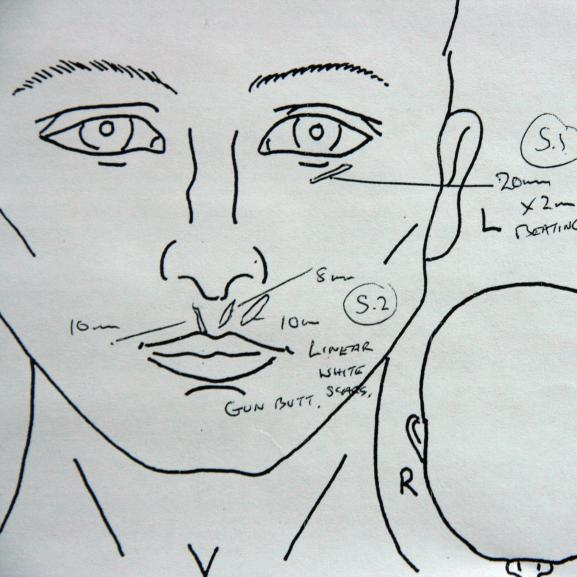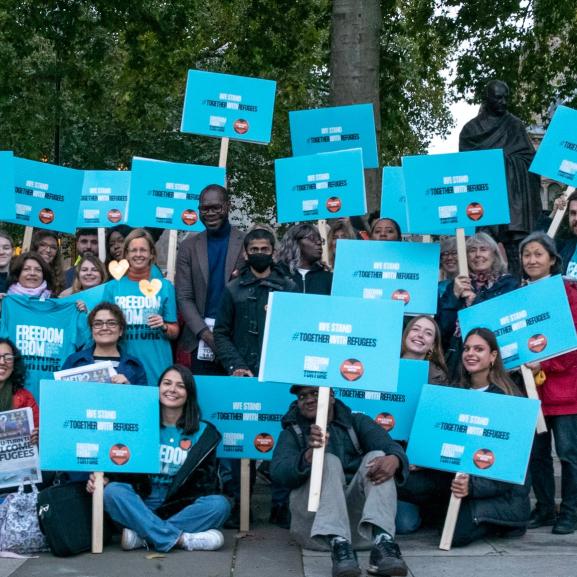Is torture legal?
Torture is always wrong. Torture is prohibited under international law. At a time where presidents endorse torture and the UK has been found complicit in torture and rendition, we are reiterating this message loud and clear.
- Article 5 of the Universal Declaration of Human Rights states; “No one shall be subjected to torture or to cruel, inhuman or degrading treatment or punishment.”
- The UN Convention Against Torture came into force on 26 June 1987. It requires countries to take active steps to prevent torture and declares: “No exceptional circumstances whatsoever, whether a state of war or a threat of war, internal political instability or any other public emergency, may be invoked as a justification of torture.”
- In the UK, the Human Rights Act was introduced in 1998 and Article 3 states that "No one shall be subjected to torture or to inhuman or degrading treatment or punishment." As well as torture being illegal in all circumstances, it prevents the UK from deporting or extraditing people to another country where they are at risk of torture.
The prohibition of torture is a fundamental principle of international law and applies to all countries, even those who have not specifically signed and ratified the United Nations Convention Against Torture.
Despite this, it is still happening in many countries and even in those that have signed and ratified the United Nations Convention Against Torture.
Other governments refuse to acknowledge their complicity in torture and fail to take responsibility for upholding human rights standards and holding states to account. This encourages a culture of impunity and allows torture to continue.
A study by the United States Senate into the CIA’s post-9/11 “enhanced interrogation” techniques, such as waterboarding and sleep deprivation, also concluded that torture does not work.
Useless, ineffective, and devastating
The UN Secretary-General António Guterres calls torture an “abominable and useless practice." Scientific evidence demonstrates that torture is not an effective interrogation method. A study by the United States Senate into the CIA’s post-9/11 “enhanced interrogation” techniques, such as waterboarding and sleep deprivation, also concluded that torture does not work.
Torture leaves physical and psychological scars and has a devastating, long-lasting impact on people who experience it and their families. Each year, we provide roughly 20,000 psychological therapy sessions to help people overcome the effects of torture.
Is torture illegal in the UK?
Yes, both domestic and international law strictly prohibit torture in the UK. Torture was ruled out by the English common law, and proscribed by Magna Carta, as far back as the 13th century. Most notably, the UK is bound by the UN Convention Against Torture, which requires countries to take active steps to prevent torture.
However, there have been numerous examples where the UK government has been involved and complicity in campaigns of violence and torture, such as in Xinjiang.
The UK is documented to have played an active role in abuses committed by the US and other partners around the world. Mounting evidence has emerged suggesting that UK agencies assisted in kidnappings, detentions, and interrogations, during which appalling abuses took place.
In key cases, UK officials and Ministers have denied British involvement over periods of many years, before being compelled by the courts or political pressure to accept UK complicity.
Why are people tortured?
People are tortured for different reasons. They may be political activists and engaged in lawful and peaceful activities. They may be targeted because of their ethnicity, race, community, gender, sexual orientation or other characteristics, or for personal reasons, or even at random. People of all ages are tortured and we help them overcome it - from children and young people to the elderly.
Torture takes place in many settings, most commonly in police stations, military and security establishments, during and after conflicts, and in areas where institutions, including the rule of law, are fragile or non-existent.
No matter where or why torture occurs it is always wrong. It is illegal and it tries to destroy lives. It is never justified.






